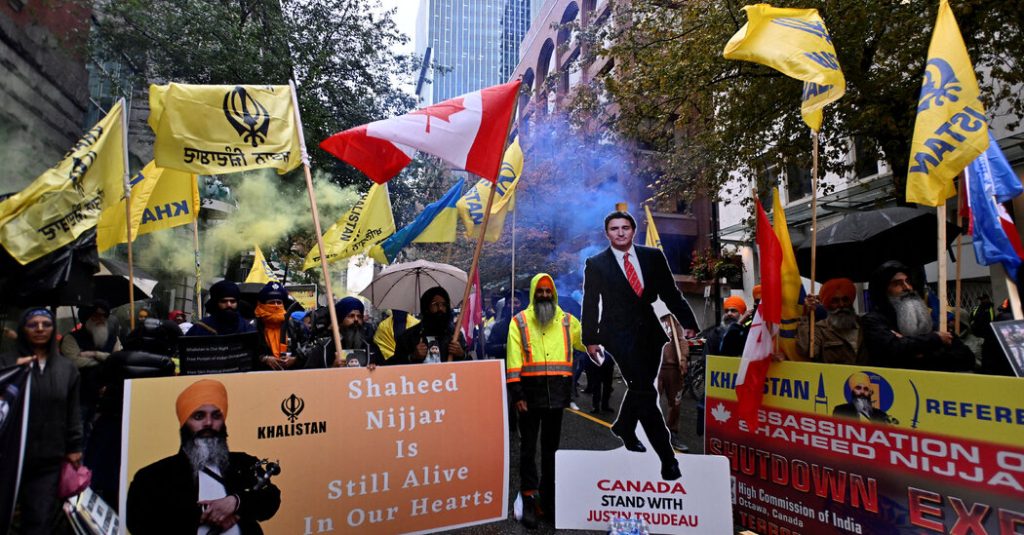Three men were arrested and charged with the killing of Sikh leader Hardeep Singh Nijjar in British Columbia, sparking tensions between India and Canada. Nijjar, a Sikh nationalist, was shot by two masked assailants in the parking lot of a temple in Surrey, British Columbia where he was president. The men charged with first-degree murder and conspiracy to commit murder were identified as Karan Brar, Kamalpreet Singh, and Karanpreeet Singh, all Indian nationals in their 20s living in Canada for three to five years. The Royal Canadian Mounted Police are investigating possible links to the Indian government’s involvement in the killing, following diplomatic disputes between the two countries.
Nijjar was a prominent figure in the local Khalistan movement, advocating for a separate Sikh nation in India that includes Punjab. He had moved to Canada in the 1990s during India’s crackdown on Sikh leaders and was the leader of the Guru Nanak Sikh Gurdwara temple in Surrey. The Indian government had labeled Nijjar a terrorist in 2020, leading to tensions between Canada and India when Prime Minister Trudeau accused India of being involved in Nijjar’s killing. The two countries expelled senior diplomats as a result of the accusations.
Jagmeet Singh, leader of the federal New Democratic Party, testified at a foreign interference inquiry last month about police warnings of potential threats to his life, similar to those received by Nijjar and other Sikh community members. The inquiry, established in response to allegations of foreign interference in Canadian elections, found that Indian intelligence officials use proxies in Canada to influence communities and politicians, particularly those involved in the Khalistan movement. Balpreet Singh Boparai, a lawyer with the World Sikh Organization of Canada, called for transparency in holding accountable those responsible for Nijjar’s killing and interference activities.
Despite the arrests of the men suspected in Nijjar’s killing, members of the Sikh community are concerned about the lack of information released by police on the progress of the investigation. Some feared that Nijjar’s death anniversary would pass without resolution. Superintendent Mandeep Mooker, a homicide investigator for the Mounties, credited the bravery of the Sikh community for coming forward with information that led to the arrests. The case has raised questions about transparency and accountability in addressing politically motivated violence within the Sikh community in Canada.
The arrest of Nijjar’s alleged killers is seen as a step towards justice for the Sikh community, but there are calls for further investigation into possible involvement of Indian officials in the killing and interference activities. The relationship between Canada and India remains strained as the investigation continues. The Sikh community in Canada hopes for a transparent and thorough investigation to identify and hold accountable those responsible for orchestrating Nijjar’s killing. The case highlights the complexities of international relations and domestic security concerns within multicultural communities in Canada.


